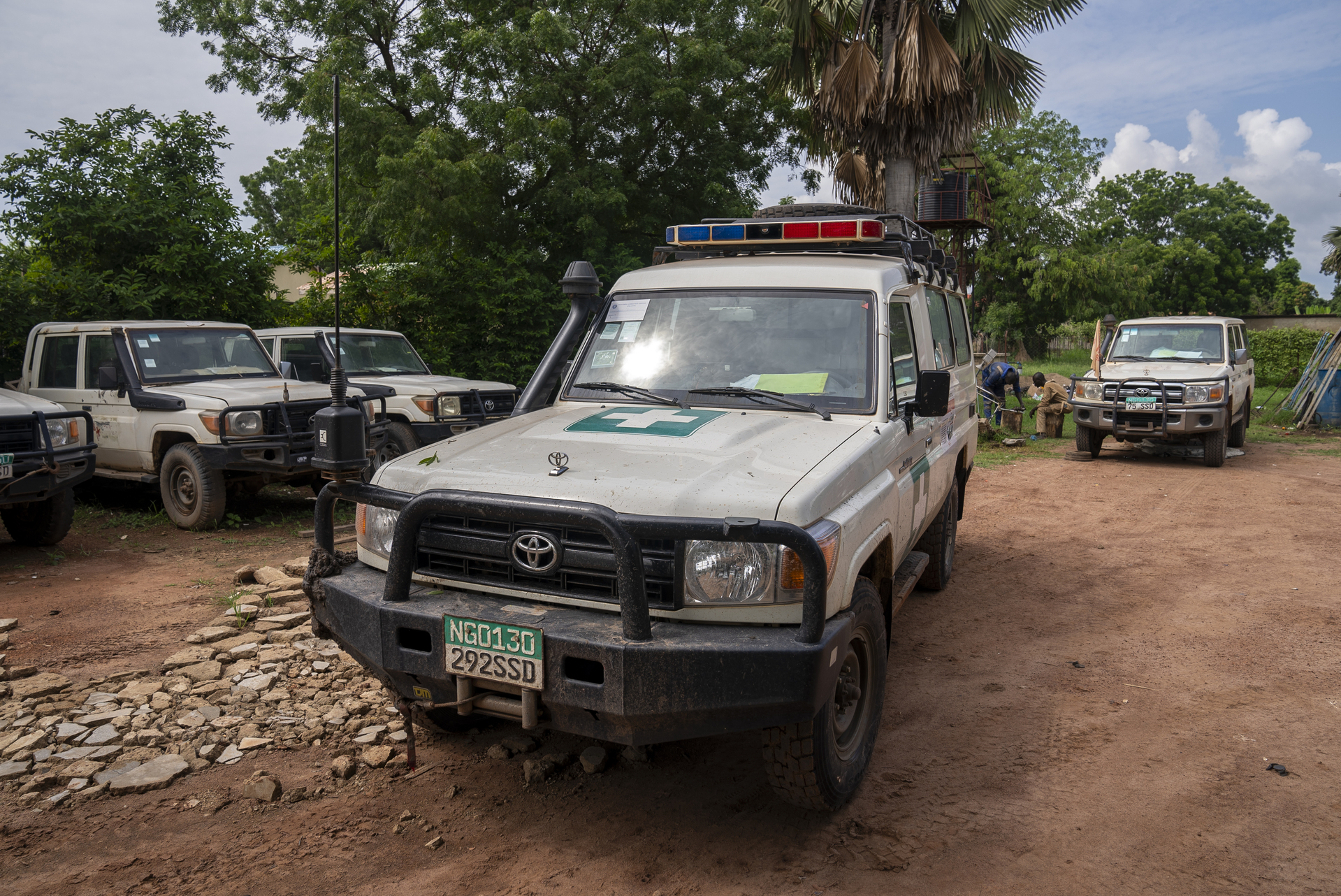 ©All rights reserved Nicola Berti / CUAMM
©All rights reserved Nicola Berti / CUAMM
Supporting CUAMM to Strengthen Health System Resilience in Lakes State, South Sudan
Grantee: Doctors with Africa CUAMM
Location: South Sudan, Africa
Grant Cycle: 2025 – 2027
Type of Grant: three-year program support, Protracted Emergency Relief
Website: doctorswithafrica.org
Human Welfare
& Rights
Founded in 1950, Doctors with Africa CUAMM was the first healthcare-focused NGO to receive official recognition from the Italian government. With over 70 years of experience, CUAMM remains a leading organisation in advancing public health and improving health outcomes among vulnerable communities across Sub-Saharan Africa. The organisation has worked in 42 countries and is currently active in nine: Angola, Ethiopia, Mozambique, Central African Republic, Ivory Coast, Sierra Leone, South Sudan, Tanzania, and Uganda. CUAMM carries out both long-term development and emergency interventions, with the overarching goal of promoting equitable access to quality healthcare. While maternal and child health is its core focus, CUAMM adopts a comprehensive approach, addressing communicable and non-communicable diseases as well as chronic conditions.
CUAMM has been operating in South Sudan since 2006 and is currently present across all eight counties of Lakes State. In close collaboration with the Ministry of Health, the organisation supports the delivery of healthcare services to a population of over one million. Its intervention includes 66 primary healthcare centres, four hospitals, two health science institutes, and a network of 672 village health workers. CUAMM also provides technical assistance to all county health departments, strengthening governance and public health systems at the local level.
South Sudan continues to face profound development and humanitarian challenges. As of 2024, approximately 70% of the population depends on humanitarian assistance. The national health system remains severely under-resourced, with high maternal mortality rates, limited health personnel, and significant infrastructure gaps: only 57% of health facilities are operational, and just 11% meet national standards. The transition from the Health Pooled Fund-HPF (2013-mid 2024) to the Health System Transformation Project-HSTP (mid 2024-ongoing) has not been successful in addressing the main gaps affecting the availability and quality of health care, including shortages of medicine, lack of motivated and skilled health workers and scarcity of resources for training and supervision.
Lakes State is particularly vulnerable due to its geographic isolation, frequent climate shocks, and the presence of displaced populations. By late 2024, more than 146,000 internally displaced persons (IDPs) were hosted in the region. The combination of increased needs and limited resources has placed growing pressure on referral systems and hospital-level care. CUAMM’s approach is grounded in health system strengthening and the continuum of care, integrating services across community, primary, and hospital levels. The organisation has remained operational through multiple crises, combining humanitarian response with long-term development, fostering local ownership, and reinforcing institutional capacity. During the transition from HPF to HSTP, CUAMM played a key role in sustaining essential health services by mobilising complementary resources and preventing systemic collapse. It established Lakes State’s emergency referral network and rehabilitated key facilities, including Rumbek State Hospital, which alone accounted for 20% of all assisted deliveries in the state in 2023.
The partnership between CUAMM and the Nando and Elsa Peretti Foundation (NaEPF) began in 2017, during the famine declaration in South Sudan. Since then, NaEPF has supported CUAMM in addressing critical funding gaps in service delivery, including a previous three-year intervention to sustain operations at Rumbek State Hospital. This collaboration has helped ensure the continuity of life-saving services, especially in maternal and child health.
In 2025, reaffirming its commitment to South Sudan and to its broader humanitarian strategy in protracted crisis settings, the NaEPF renewed its support to CUAMM. This new intervention aims to improve the resilience and responsiveness of the health system in Lakes State—one of the most underserved and crisis-affected areas in the country. The project focuses on strengthening two key hospitals (Rumbek and Yirol), as well as the newly formalised state-wide ambulance referral system, which collectively serve over 1.462.470 people. Given that women and children represent the majority of the population in need, the intervention prioritises obstetric and paediatric emergencies. Activities include the provision of medical supplies, coverage of operational costs, reinforcement of human resources, and full 24/7 referral capacity.
This renewed support reflects the Foundation’s long-standing commitment to advancing health equity in vulnerable settings. By prioritising critical infrastructure and frontline personnel, the project aims to reduce maternal and child mortality and strengthen the health system’s ability to respond to emergencies in a fragile and complex environment.



